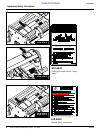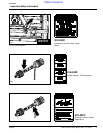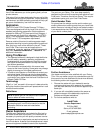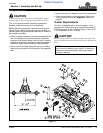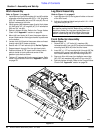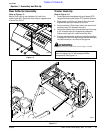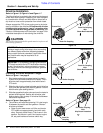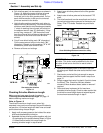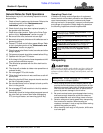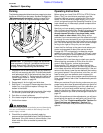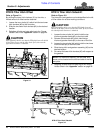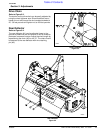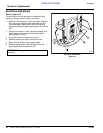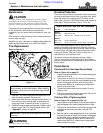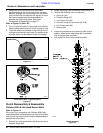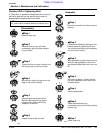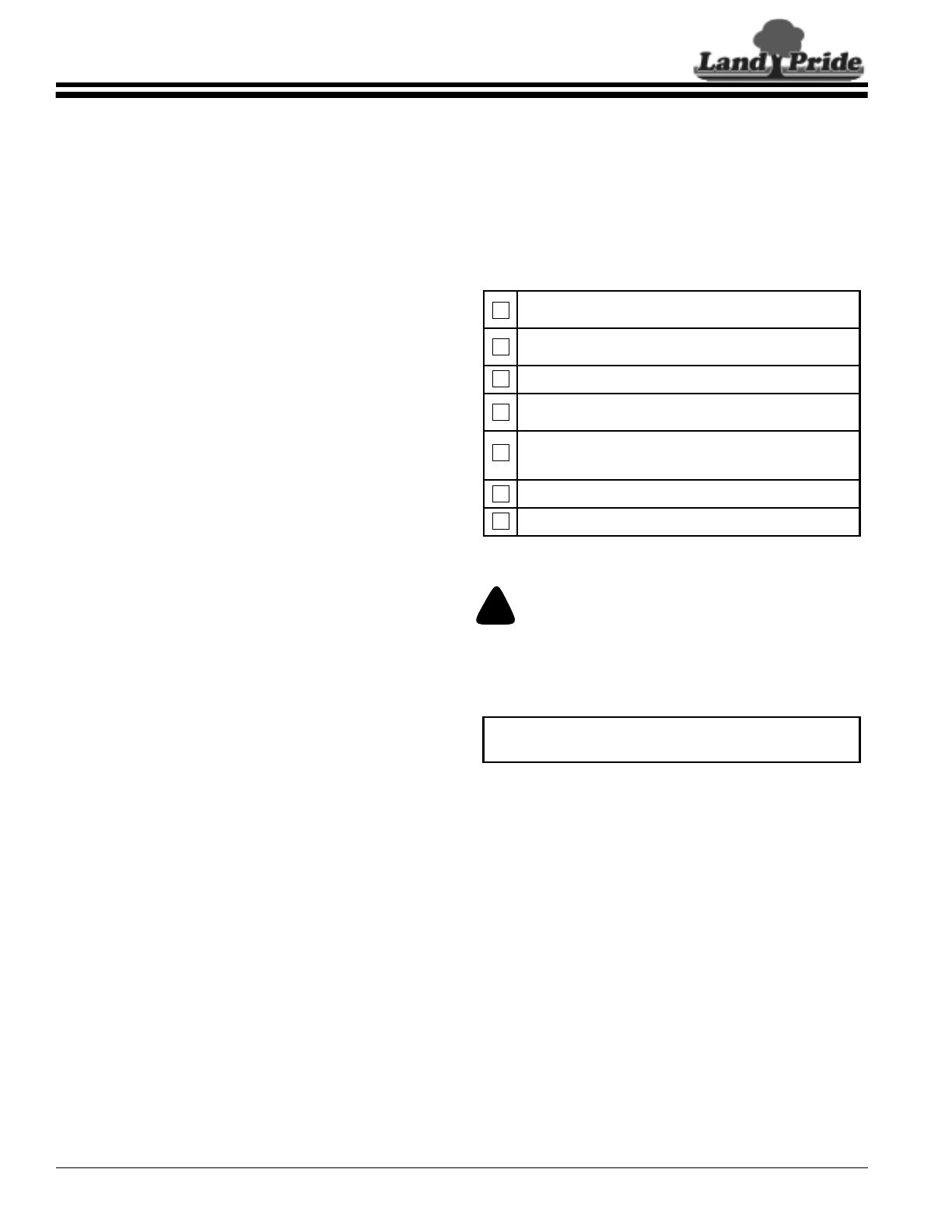
14
RTR10 & RTR15 Series Rotary Tillers 311-431M
5/05/06
Land Pride
Section 2: Operating
Table of Contents
General Notes for Field Operations
Before beginning to till, the following inspection should
be performed:
1. Check oil level in gearbox and chaincase. Refer to the
Lubrication portion of the “Maintenance and
Lubrication” section on page 23.
10. Check that all plugs have been replaced properly in
the gearbox and chaincase.
11. Check drive chain tension. Refer to the Drive Chain
portion of the “Adjustments” section on page 17.
12. Be sure all tiller tines, bolts and nuts are tight.
13. Be certain all guards, shields and dirt deflectors are in
place and secure.
14. Grease PTO shaft and all other grease fittings. Refer
to the Lubrication portion of the “Maintenance and
Lubrication” section on page 23.
15. Clear the area to be tilled of rocks, branches and other
foreign objects.
16. Tall grass and weeds should be mowed before tilling.
17. Operate with 540 rpm PTO tractor.
18. At first begin tilling at a slow forward speed and shift
up as ground conditions warrant.
19. Tiller should be operated with the tiller deck level to
the ground.
20. Tiller tines will cut better at a faster rotor speed than at
reduced throttle.
21. Do not engage PTO at full throttle.
22. Tilling should not be done in wet conditions as soil will
stick to tines.
23. After tilling the first 50 feet, stop and check to see that
the tiller is adjusted properly.
24. Do not make sharp turns or attempt to back up while
tiller is in the ground.
25. Do not engage PTO with machine in the fully raised or
lowered position.
26. Periodically check for foreign objects wrapped around
the rotor shaft and remove them after disengaging
PTO, turning off tractor, and removing ignition key.
Operating Check List
In addition to design and configuration of equipment,
hazard control and accident prevention are dependent
upon the awareness, concern, prudence and proper
training involved in its operation, transport, maintenance
and storage of equipment. Before beginning operation
the following inspections should be performed.
Transporting
!
CAUTION
When traveling on public roads whether at night or during the
day, use accessory light and devices for adequate warning to
operators of other vehicles. Comply with all federal, state and
local laws.
1. When raising the tiller to the transport position, be
sure that the driveline does not contact tractor or tiller.
Adjust the tractor’s 3-point hitch lift height so that the
tiller tines are not lifted more than 14 inches off the
ground to prevent damage to the driveline.
2. Be sure to reduce tractor ground speed when turning,
and leave enough clearance so the tiller does not
contact obstacles such as buildings, trees or fences.
3. Select a safe ground travel speed when transporting
from one area to another. When traveling on
roadways, transport in such a way that faster moving
vehicles may pass you safely.
4. When traveling over rough or hilly terrain, shift tractor
to a lower gear.
Read and follow the “Important Safety Information” section
on starting on page 1 carefully.
Read all ofTractorHookup in the “Assembly andSetup” section
on page 11.
Read all of the “Operating Instructions” section on page 14.
Lubricate the tiller as needed. Refer to the Lubrication portion of
the “Maintenance and Lubrication” section on page 19.
Check the tiller initially and periodically for loose bolts & pins,
using the Torque Values Chart in the “Appendix” section on
page 29.
Make sure all guards, shields and dirt deflectors are in place.
Check initially and periodically for loose bolts, pins, and chains.
IMPORTANT: Always disengage the PTO before
raising the tiller to transport position.
Section 2: Operating



